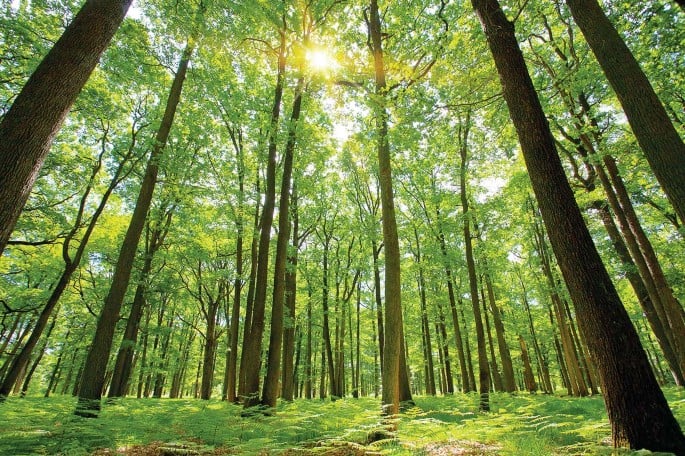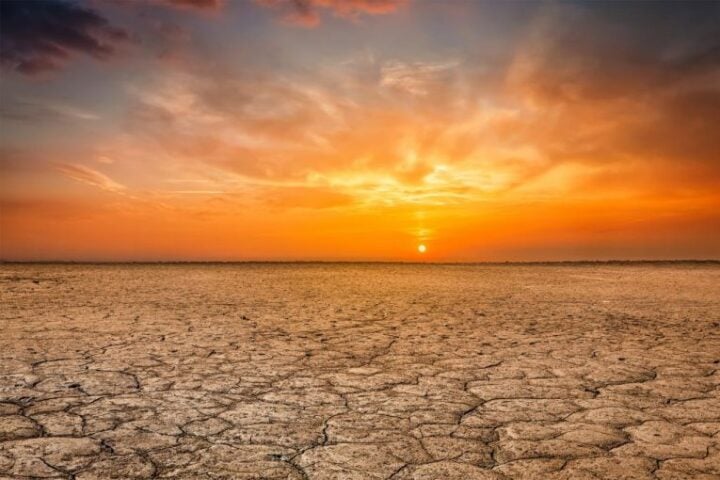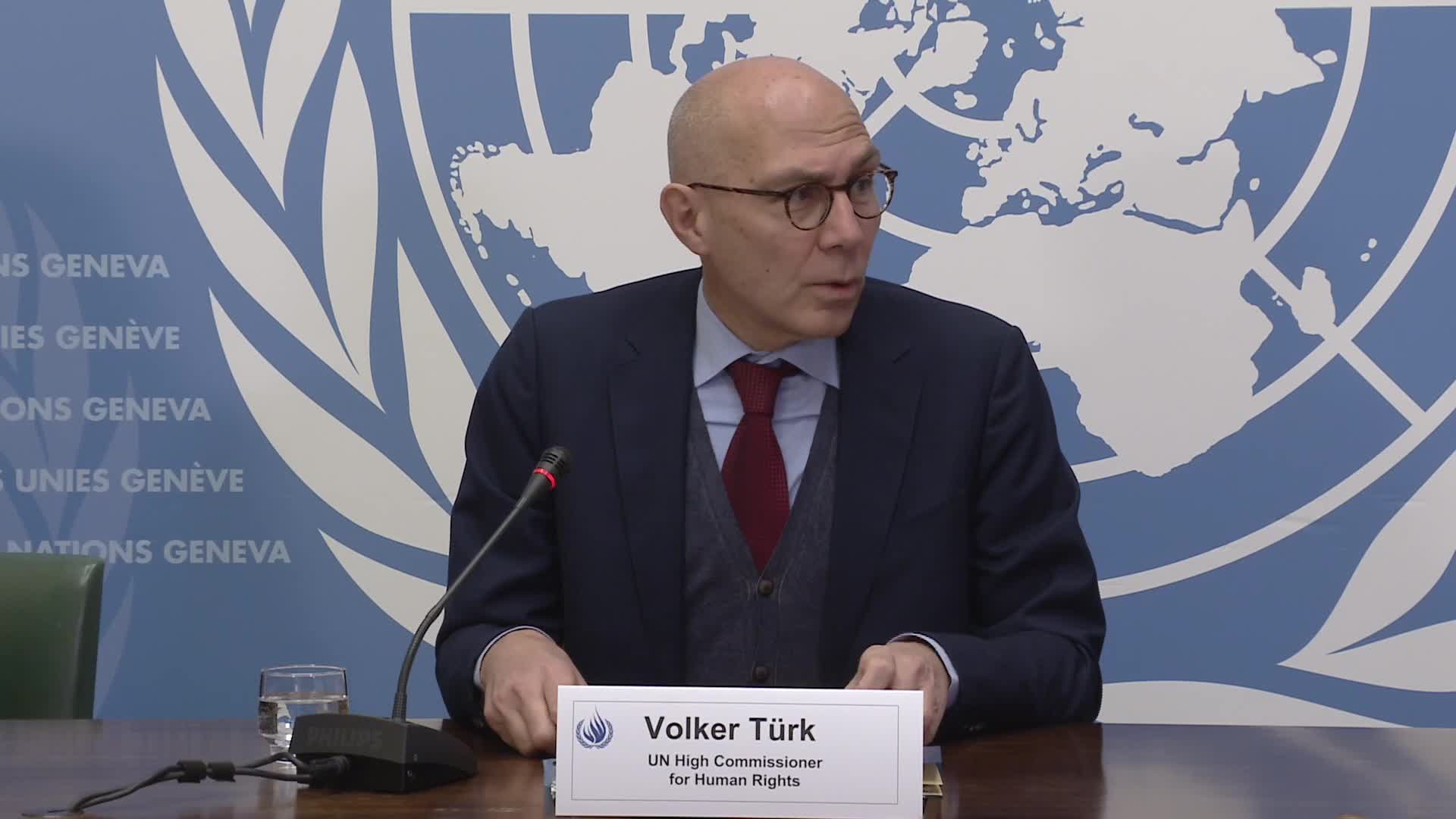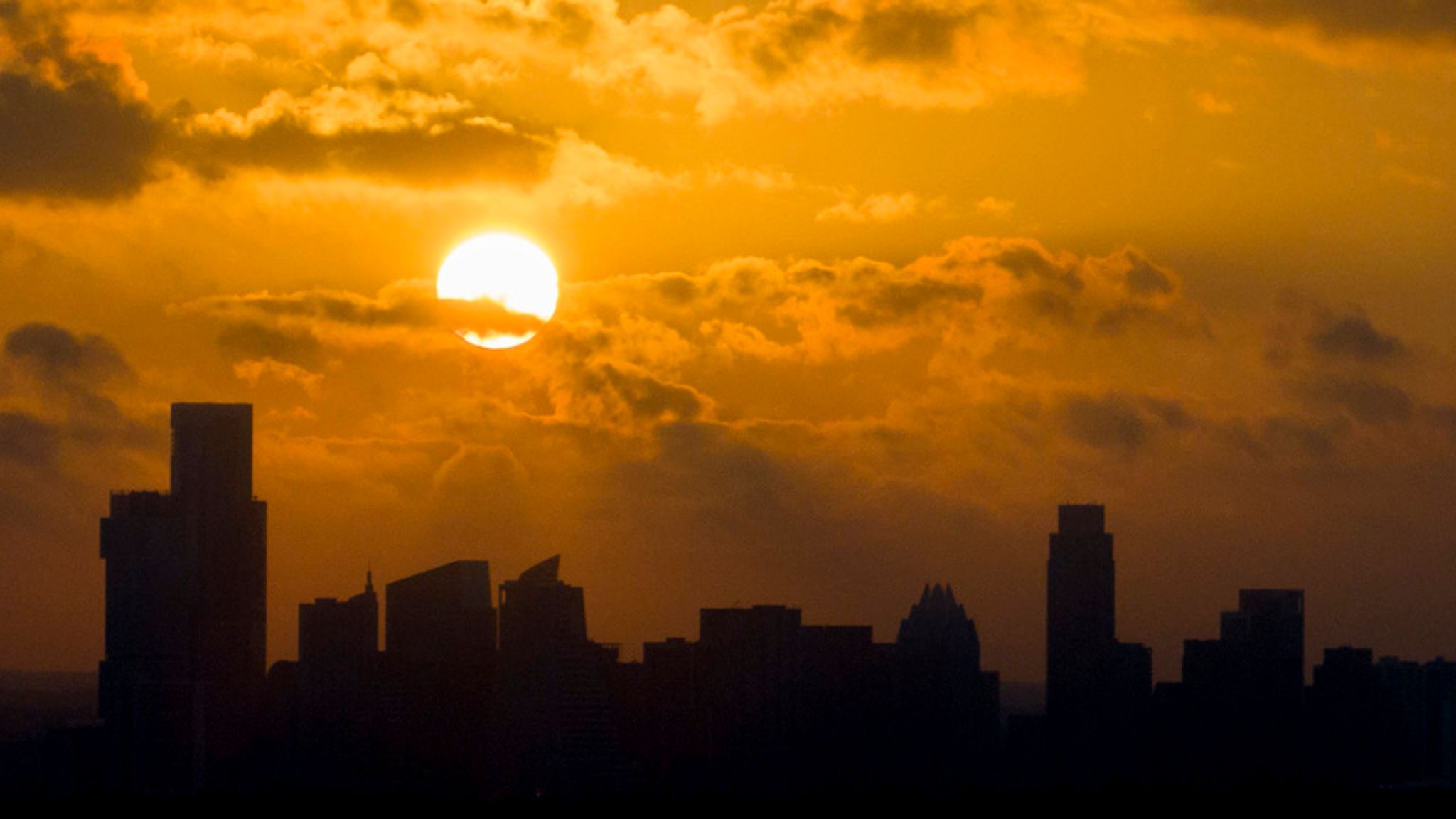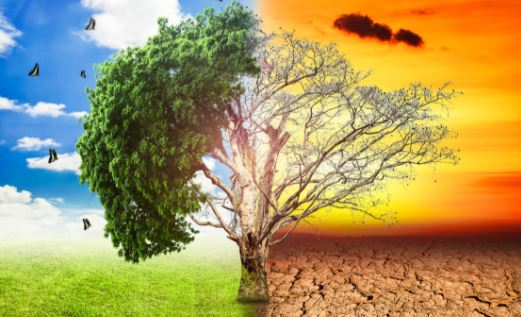The global forest review by the World Resources Institute (WRI) has disclosed that the world is headed in the wrong direction with regards to reducing forest loss – despite pledges to the contrary.
In Glasgow in 2021, during the COP26 climate conference, a group of 145 countries under the Glasgow Leaders’ Declaration on Forests and Land Use, vowed to halt and reverse forest loss by the end of the decade.
However, in a report on Monday, WRI reviewed new data from the University of Maryland which found that countries have moved in the opposite direction of declining forest loss in order to combat climate change and biodiversity loss.
The data showed that “the tropics lost 10% more primary rainforest in 2022 than in 2021″.
Advertisement
“Tropical primary forest loss in 2022 totaled 4.1 million hectares, the equivalent of losing 11 football fields of forest per minute. All this forest loss produced 2.7 gigatonnes (Gt) of carbon dioxide emissions, equivalent to India’s annual fossil fuel emissions,” the report reads.
The report stated that two countries that had the most tropical forest loss were Brazil and the Democratic Republic of Congo (DRC), followed closely by Ghana and Bolivia.
“At the national level, while primary forest loss ticked up in the two countries with the most tropical forest, Brazil and the Democratic Republic of the Congo, it rapidly increased in other nations like Ghana and Bolivia,” the report added.
Advertisement
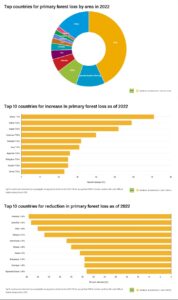
WHY FOREST PROTECTION IS IMPORTANT
Forests are a critical nature-based solution for tackling climate change, because of their capacity to remove and store carbon from the atmosphere.
They also help in preserving biodiversity and sustaining livelihoods.
Advertisement
The United Nations Environment Programme (UNEP), estimates that forests cover one third of the earth’s land mass and support the livelihoods of 1.6 billion people.
These people rely on the forest for food, shelter, drinking water, medicine and more.
Forests also help in maintaining a balanced ecosystem, buffer storms and flood.
Therefore, deforestation, especially in the tropics, can impact local temperatures and rainfall patterns and this could exacerbate the effects of global warming and affect human health and agricultural productivity.
Advertisement
NIGERIA AMONG COUNTRIES THAT PLEDGED TO PROTECT FORESTS BUT DOING THE OPPOSITE
Nigeria is among the 145 countries that pledged to reduce deforestation but are doing the exact opposite.
Advertisement
The global forest watch (GFW) data showed that four states in Nigeria – Edo, Cross River, Ondo and Taraba – accounted for 54 percent of all tree cover loss between 2001 and 2022 – losing about 58kha (thousands of hectares) in 2022 alone.
It stated that “from 2001 to 2022, Nigeria lost 169kha of humid primary forest, making up 14% of its total tree cover loss in the same time period. Total area of humid primary forest in Nigeria decreased by 8.7% in this time period”.
Advertisement
“From 2001 to 2022, Nigeria lost 1.25Mha of tree cover, equivalent to a 12% decrease in tree cover since 2000, and 671Mt of CO₂ emissions.
“In Nigeria, the top 4 regions were responsible for 54% of all tree cover loss between 2001 and 2022. Edo had the most tree cover loss at 309kha compared to an average of 33.7kha.”
Advertisement
It added that within the period under review, 11 percent of tree cover loss in Nigeria occurred in areas where deforestation was the dominant driver of loss.
